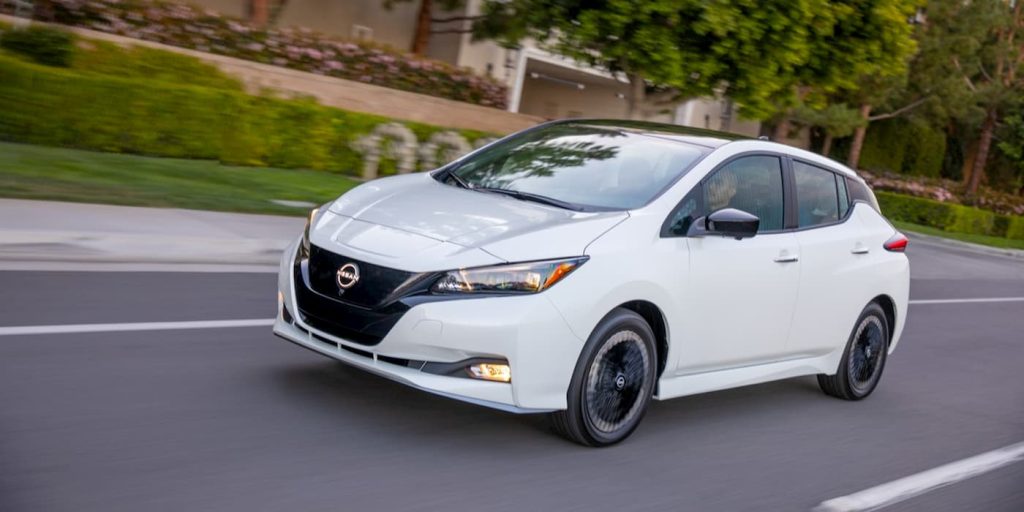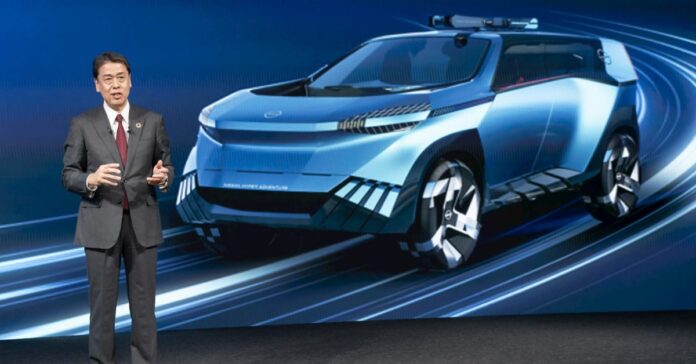Nissan launched a new business plan on Monday as the Japanese automaker looks to drive down EV costs. The new plan calls for significant EV cost reductions to reach EV and ICE cost parity by the end of the decade.
Despite kicking off a new era with the launch of its LEAF in 2010, Nissan has quickly fallen behind with longer-range, more advanced EVs rolling out.
“We cannot continue old ways of business from the past into the future,” Nissan’s CEO Makota Uchida explained in January.
The 90-year-old automaker announced its new “The Arc” business plan Monday as it looks to compete with Tesla and low-cost automakers from China. Nissan aims for “significant next-generation EV cost reduction” with new partnerships and technology.
Nissan’s new strategy will run between its NEXT and Ambition 2030 plans. “Faced with extreme market volatility,” Uchida said, “Nissan is taking decisive actions guided by the new plan to ensure sustainable growth and profitability.”
The two-part plan includes accelerating its transition to EVs while maintaining a “balanced electrified/ICE portfolio.” Through the initiative, Nissan aims to reach 1 million in annual sales with an operating profit margin of over 6% by the end of fiscal 2026.

Nissan reveals its new business plan to cut EV costs
Nissan says this will pave the way for the second part, which includes enabling the EV transition with partnerships, differentiated innovations, and new revenue streams for long-term growth.
From the new business opportunities, Nissan sees revenue potentially reaching 2.5 trillion yen ($16.5 billion).

Nissan will launch 30 new models over the next three years, including 16 electrified and 14 ICE models. From 2024 to 2030, Nissan will launch 34 electrified models to cover all segments. The automaker expects electrified vehicles to account for 40% of global sales by 2026 and 60% by 2030.
- In the US, Nissan is investing $200 million in integrated customer service with plans to refresh 78% of its line-up. This includes launching e-POWER and plug-in hybrid models.
- Nissan is looking to pick up the slack in China with eight new energy vehicles (NEVs), including four Nissan-branded NEVs. The automaker plans to export models by 2025. By 2026, Nissan targets 1 million units in annual sales, an increase of 200,000.
- In Europe, Nissan is launching six all-new models, aiming for a 40% EV sales mix by 2026.
Nissan’s “product offensive” will include new development and manufacturing upgrades to make EVs more affordable.
The automaker says by developing “EVs in families, integrating powertrains, utilizing next-gen manufacturing, group sourcing, and battery innovations,” Nissan aims to reduce the cost of next-gen EVs by 30% (compared to the current Nissan Ariya). This will help drive down costs to achieve cost parity between EV and ICE cars by fiscal 2030.

Nissan plans to introduce new EV tech, including NCM li-ion, LFP, and all-solid-state batteries for a wide range of uses. Its new NCM batteries are expected to reduce fast charging times by 50% while increasing energy density by 50%.
After confirming an EV partnership with Honda earlier this month, Nissan followed up with another collaboration with Mitsubishi as the automaker seeks to boost its competitiveness.
Nissan confirmed it will launch a new LEAF successor and electric Juke and Qashqai (Rogue Sport in the US) models in Europe. According to reports, the new LEAF will look nothing like the model it’s replacing with a more SUV/crossover design, similar to the Ariya. It will also roll out in the US and other global markets.


